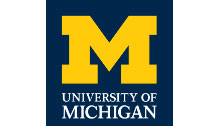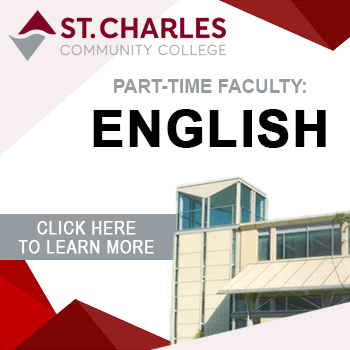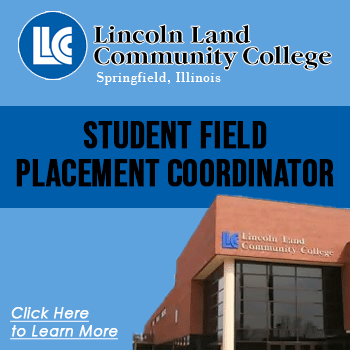This job has Expired

The Joan and Sanford Weill Dean of Public Policy
Job Description
Summary
Ann Arbor, Michigan
The mission of the University of Michigan is to serve the people of Michigan and the world through preeminence in creating, communicating, preserving, and applying knowledge, art, and academic values, and in developing leaders and citizens who will challenge the present and enrich the future.
The Ford School at the University of Michigan is a community dedicated to the public good. We inspire and prepare diverse leaders grounded in service, conduct transformational research, and collaborate on evidence based policymaking to take on our communities' and our world's most pressing challenges.
THE SEARCH
The University of Michigan (U-M) seeks an experienced and inventive scholar/administrator to serve as the fifth dean of the Gerald R. Ford School of Public Policy (the Ford School). This is a pivotal moment for the leadership of one of the nation’s most distinguished schools of public policy. Perhaps never before has an accurate understanding of policy choices and consequences been more crucial to the welfare of the immediate community, the State of Michigan, the nation, and the world. The new dean will lead a school that equips students with the analytic and leadership skills to be wise and creative policymakers and an institution that conducts groundbreaking research that informs key policy debates and helps identify solutions to the world’s most pressing challenges. The dean will be an engaged and compassionate community builder, an effective manager, and a strong spokesperson and advocate for the School.
The last decade has seen significant growth and expansion at the Ford School. The new dean will build on a strong foundation and lead a strategic exercise that will help to write the next chapter of the School’s story. The dean will be greeted by a community of faculty, staff, students, and alumni who welcome continued growth and innovation, have a record of adaptability, and are united and energized in shared purpose and mission. The Ford School of Public Policy is a world leader in public policy, teaching, research, and service, bringing together policy scholars, changemakers, and practitioners from a wide range of disciplines who engage with outstanding students who are committed to advancing the public good. An unusually collaborative and collegial community, the Ford School has both distinctive breadth and depth and is greater than the sum of its parts. The Ford School community champions diversity, equity, and inclusion, and seeks a dean who brings a strong personal commitment to advance those values.
THE UNIVERSITY OF MICHIGAN
The Ford School is a relatively small, but disproportionally visible and influential, unit within the University of Michigan, one of the nation’s great academic powerhouses. With more than 65,000 students, nearly 54,000 employees, a budget exceeding $11 billion, research expenditures of $1.7 billion, and an endowment of $17 billion, few universities in the country, public or private, match the resources and consequence of the University of Michigan. The University has a strong service mission and orientation, engaging actively with its local communities and aligning its research, scholarship, and programmatic offerings to benefit the State of Michigan.
Aligned with the University’s public mission, U-M is a leader in its commitment to diversity, equity, and inclusion. These values are embedded and integrated throughout the University to ensure a pluralistic entity that is free from discrimination and welcomes and supports underserved and underrepresented communities. It is central to the University’s mission to ensure that each member of the community has an unfettered opportunity to thrive at the institution, with the understanding that diversity is key to individual flourishing, educational excellence, and the advancement of knowledge.
U-M's flagship campus, which the Ford School calls home, is in Ann Arbor, 35 miles west of Detroit. On the Ann Arbor campus are over 3,100 tenured and tenure-track faculty; nearly 4,800 additional academic personnel including lecturers, clinical faculty, research professors, and supplemental faculty; and more than 51,000 undergraduate, graduate, and professional students.
Nearly 11,000 students live in the Ann Arbor campus housing. Student life takes advantage of the many green spaces, recreational areas, and study spaces found throughout campus, as well as the many clubs, organizations, and fraternities and sororities. Big Ten athletics provide an opportunity for students to cheer on the Wolverines playing on any of the 29 varsity sports teams. U-M is known for having the largest football stadium in the country, known as The Big House. It brings U-M students, alumni, and Ann Arbor community members together throughout the season.
Ann Arbor is widely recognized as one of the best college towns in America and the area boasts exceptional scenery, arts, culture, and industry, and the Detroit airport is easily accessible for travel. In and around Ann Arbor, there are plenty of sites to explore as well as scenic strolls along the Huron River or local spots where locals can be found kayaking, snowshoeing, and biking when they aren’t spectating a U-M athletic event.
For more information, visit https://umich.edu/about/.
LEADERSHIP
President Santa J. Ono is the University of Michigan’s fifteenth president, beginning his tenure in October of 2022. President Ono is an accomplished researcher in the areas of the immune system and eye disease and has a professorial appointment in the U-M Medical School. During his leadership welcome, President Ono outlined his intentions to extend U-M’s diversity, equity, and inclusion initiatives, fortify faculty and staff development, and enhance the University’s excellence and impact in teaching, service, and research. Prior to stepping into the presidency at U-M, Dr. Ono served as President and Vice Chancellor at the University of British Columbia and before that as President of the University of Cincinnati. He earned his BA in biological sciences from the University of Chicago and a PhD in experimental medicine from McGill University.
Laurie McCauley, Provost and Executive Vice President for Academic Affairs, oversees U-M’s 19 schools and colleges. Before her appointment as provost in May of 2022, Dr. McCauley served as dean of the U-M School of Dentistry. She is an active researcher supported by the National Institutes of Health and a member of the National Academy of Medicine. She is also a recipient of the Ida Gray award in recognition of her outstanding efforts in promoting multicultural ideals.
THE GERALD R. FORD SCHOOL OF PUBLIC POLICY
Named for U-M alumnus and former President Gerald R. Ford, the Ford School is one of the nation’s leading public policy schools with a mission to inspire and prepare diverse leaders to tackle the most complex policy issues and advance the public good.
The Ford School’s precursor was the Institute of Public and Social Administration, founded in the 1930s, which became the Institute of Public Policy Studies in the 1960s and offered the nation’s first public policy degree. The School of Public Policy grew out of these earlier efforts and came into existence in 1995. In 1999, it was named in honor of Gerald Ford. The Ford School now occupies Joan and Sanford Weill Hall on the Ann Arbor campus, which provides nearly 50,000 square feet of teaching and office space. Near the schools of Law, Education, and Business and U-M social science departments, cross-unit collaboration has been woven into the fabric of the School from the start.
The Ford School has 83 world-class faculty, including 51 core faculty members, and 96 staff supporting 482 undergraduate and graduate students. The School is ranked number one in social policy and number three in both policy analysis and health policy by U.S. News & World Report. It is also ranked highly in environmental policy, urban policy, and international and global policy, reflecting its breadth of topical coverage and excellence. The Ford School offers a two-year master’s degree in public policy; an undergraduate major and minor in public policy; joint PhDs in public policy with economics, political science, and sociology; multiple dual degrees; and a graduate certificate in science, technology, and public policy. The School is also engaged in a review and potential expansion of its one-year Master of Public Affairs (MPA) program targeting mid-career professionals.
The Ford School prides itself on a curriculum grounded in rigorous quantitative and qualitative analysis, evidence-based policymaking, and a multidisciplinary approach to research. Ford School undergraduates typically begin their U-M academic careers in the College of Literature, Science, and the Arts (LS&A), providing a strong foundation of critical thinking and diversity of thought. Graduate students come from a diverse range of academic backgrounds with multi-pronged interests that are well-suited to the Ford School’s encouragement of collaboration and its numerous dual-degree offerings. The School is also global in outlook and composition. As a founding member of the Association of Professional Schools of International Affairs (APSIA), the Ford School has course offerings, co-curricular programs, and research on a wide array of international topics and a faculty, staff, and student body hailing from countries around the world.
Preparing its students to become leaders dedicated to the public good is core to the Ford School, and leadership development is an area of focused investment. Master’s students receive individualized leadership coaching while on internships to boost their skills and provide intentional guidance and direction to get the most from their internship experience and to build their leadership capacity. Students participate in skills and strengths assessments to raise self-awareness, and courses devoted to leadership as well as programs and speakers attending to the topic round out the focus.
The Ford School also prioritizes policy-relevant interdisciplinary research and engagement with the world of policy practice to impact public policy at the local, national, and global levels. It hosts a number of research centers and initiatives that apply multidisciplinary approaches to consequential public policy issues. They include the Center on Law, Finance, and Policy; Center for Racial Justice; Center for State, Local and Urban Policy; Education Policy Initiative; International Policy Center; Poverty Solutions; Program on Practical Policy Engagement; Science, Technology and Public Policy Program; Weiser Diplomacy Center, and Youth Policy Lab. These interdisciplinary hubs help connect the School community to a broad network of scholars and policy practitioners.
The Ford School has an active, loyal, and accomplished alumni base. Its 4,400 alumni are dispersed across the globe, engaged in a range of public service, nonprofit, and consulting careers that are relevant to public policy. Through the Ford School’s Alumni Board and other channels, they are a source of tremendous ongoing support to the School.
The Ford School Committee is a volunteer group founded in 1991 to help expand and promote private support for the School’s students and programs. It is composed of leaders from the public and private sectors who share an interest in and commitment to teaching and research in public policy. The Committee provides support to the School’s fundraising efforts and assists in reviewing the School’s plans and programs to advance the School’s mission and goals.
The Ford School’s faculty are a community-oriented and collaborative group. Many hold joint appointments across a range of disciplines and departments at U-M, including economics, political science, sociology, law, social work, urban planning, and environment and sustainability. Members of the Ford School faculty generally have a foot in the realm of public service, actively serving, consulting to, and advising government organizations, nonprofits, and community organizations. Several professors of practice bring expertise and insight to curricular and co-curricular activities with Ford students. The Ford School also benefits from an outstanding staff composed of professionals with experience in public policy analysis and research; student and career services; finance and development; outreach and communications; and program management and administration.
The Ford School has a deep and demonstrated commitment to diversity, equity, and inclusion (DEI) and views the commitment as central to its mission to promote the public good. In recent years, the DEI team for the school has grown from one staff member to a team of three with financial resources invested in the work. Tangible examples of this commitment include the launching of the Center for Racial Justice and infusion of DEI into curricula at all levels. For more information, visit https://fordschool.umich.edu/dei. Reflecting its commitment to DEI, the School is one of a select number of policy schools to host the Public Policy and International Affairs (PPIA) Junior Summer Institute and has done so since the inception of the program over 40 years ago. The PPIA Institute is an intensive residential program for diverse undergraduate students across the United States who are interested in pursuing graduate study in public policy. Many PPIA participants have returned to the Ford School for its Master of Public Policy (MPP) program, contributing to the diversity of the student body. The Ford School also offers Rackham Masters Awards for selected fellows who complete the summer institute and are admitted to the MPP program. The award provides four semesters of tuition and fees, a stipend, and health insurance.
The Ford School is deeply committed to public engagement and service. In recent years, the School has sponsored an abundance of public events that draw and stimulate not only its own students and faculty, but also many participants from across the surrounding community. The almost 100 such events in the last two years alone have brought political leaders, top policymakers, grassroots organizers, and public intellectuals like Sen. Elizabeth Warren, Secretary of State Antony Blinken, FBI Director Christopher Wray, and Dr. Johnnetta Betsch Cole to the Ford School, and have explored a vast range of topics from nationalist extremism, to trauma-informed policing, to scientific innovation policy. Ford School faculty, staff, and students also engage with the community regularly through their research, policy advocacy, and service programs.
THE ROLE OF THE DEAN
As the chief academic and budget officer of the Ford School of Public Policy, the new dean has a rare opportunity to lead a top-ranked school that is known for its academic rigor, grounding in research, and strong community of collaboration. With impact locally and globally, the Ford School is service-oriented and contributes significantly to forging solutions to the critical issues of our time.
The dean is a direct report to the provost and oversees the academic and research enterprise within the Ford School. The dean has 12 direct reports including two associate deans, the directors of the masters, undergraduate, and PhD programs, as well as six administrative leaders and a special assistant. Financial oversight includes a projected 2023 budget of over $27 million, research expenditures of about $3.7 million, and an endowment of close to $90 million.
The new dean will bring successful leadership experience, intellectual and scholarly breadth and depth, and a keen appetite for collaboration within the Ford School, across the University, and beyond. While teaching and research will be at the forefront, the dean will also be expected to be a bridge to policymakers outside of the University, using their network and building relationships to position the Ford School to continue to have an impact that is greater than the sum of the parts.
OPPORTUNITIES AND CHALLENGES
The overarching challenge for the next dean is to build on and leverage the School’s record of success, balancing growth and innovation with strengthening existing programs and established priorities. Specific expectations for the dean include:
Selectively grow the Ford School’s distinctive academic programs
Over the past two decades, the Ford School has significantly grown its academic offerings, adding new joint PhD programs with economics, political science, and sociology as well as a two-year BA program for third- and fourth-year undergraduate students and a new BA minor. It also has a certificate program in science and technology policy. The School is in the process of redesigning its one-year Master of Public Affairs degree for mid-career professionals that might include a blended program with in-person and remote content. Faculty and staff have embraced this growth and served critical roles in designing, launching, and expanding these programs.
Currently, the Ford School is limited in the number of University of Michigan undergraduate students it can enroll in its two-year BA program. The next dean has an opportunity to further grow this popular program by developing creative, outside-of-the-box approaches to attracting more students, especially undergraduate students that more closely resemble the diverse population of the region, the state, and the nation.
The Master of Public Policy program has maintained relatively steady enrollment over the past decade. The next dean will need to deepen existing relationships – and forge new ones – with undergraduate institutions, nonprofit organizations, public policy education consortia, employers, and other individuals and groups to broaden recruitment and strengthen pipeline programs that ensure the School attracts highly qualified and diverse applicant pools.
Further enhance the Ford School’s robust interdisciplinary approach to research and education
From its earliest incarnation, the Ford School has been a nexus of interdisciplinary collaboration at the University of Michigan. Faculty choose to affiliate with the School in part due to the ease of access to colleagues researching similar or overlapping issues from different perspectives, and students choose to enroll in the School to benefit from the broad thinking and knowledge of distinguished faculty who are deeply engaged in teaching. The Ford School is a microcosm of the University of Michigan, which actively promotes interdisciplinary collaboration across academic units by offering financial incentives for cluster hires and incentivizing faculty joint appointments. The next dean will need to find strategic opportunities to leverage this University-wide support and encourage even greater interdisciplinary collaboration both within the School and across the University’s schools and colleges. The dean will also be attuned and responsive to the challenges and equity considerations that sometimes arise among scholars of a wide range of fields, subjects, and methodologies.
Sustain the Ford School’s commitment to analytic rigor while educating a broad student body and producing alumni who find career success and public policy impact in a wide range of professions
The Ford School has a well-earned reputation as an institution that emphasizes analytical rigor in its research and education. While faculty in the School have always represented a diversity of disciplines and methodologies, the School has long had a reputation for quantitative policy analysis. In recent years, more qualitative classes have been added to the curriculum – especially in the Master of Public Policy program – in response to changing experience and career aspirations of incoming students. Today, more students with limited quantitative analytic skills enroll with the ambition to put their policy degrees to use pursuing careers in advocacy and social justice work. The next dean will need to ensure that the Ford School continues its long-standing commitment to analytic rigor while supporting a student body that has changing and broadening perspectives on how a school of public policy can prepare them for a range of careers serving the public good.
Extend and deepen the Ford School’s commitment to diversity, equity, and inclusion
U-M’s leadership has consistently and persistently centered diversity, equity, and inclusion as they build an ever-stronger academic community, and the University is in the process of launching a second five-year round of community-wide DEI strategic planning. At the unit level, the Ford School is guided by its first five-year strategic plan specifically focused on DEI and is in the process of evaluating the data gleaned from their efforts and progress to date in preparation for its own second plan. Current priorities include: diversifying faculty and staff; diversifying the student body; integrating anti-racism into the curriculum as well as co-curricular activities; supporting research and policy engagement that pursues just, equitable, and inclusive public policy for diverse populations; creating engagement opportunities that advance social justice; and bolstering DEI communications. Much has been accomplished, and much remains to be done.
The Ford School has an important role to play in advancing the University’s overall DEI goals. Faculty, staff, and students are engaged in groundbreaking research that impacts marginalized people and underserved communities. The various centers and initiatives hosted by the Ford School also prioritize DEI in their research, student training, public policy advocacy, and community engagement. The commitment, energy, and insight of the new dean will be critical to the School’s ability to continue to make meaningful headway toward its ambitious DEI goals.
Sustain the School’s deep sense of community, while continuing to embrace growth and innovation
The Ford School community is tight-knit and strikingly positive in outlook. This comes not only from its modest literal size but also is borne of a culture and habit of collaboration and mutual respect dating back to its earliest days. As the School continues to seize opportunities for growth in service to its mission, a dean of exceptional talent for community building must tend to the important and delicate task of preserving the School’s unusually collegial ethos, and sustaining close connections, even intimacy, among and between faculty, students, and staff. It is in no small measure this constructive climate that enables the School to attract and retain the very best faculty, students, and staff, and produce exceptional outcomes.
Uphold the strength of the leadership team, likely through a generational shift
The Ford School has benefited from an unusually talented and long-serving group of senior leaders who have worked tirelessly and effectively alongside past deans, faculty, other staff, and students to build the Ford School into the high-functioning unit it is today. In addition to the Associate Dean for Academic Affairs and the Associate Dean for Research and Policy Engagement, the leadership team includes the Chief Administrative Officer, Chief Development Officer, Director of Communications and Outreach, Director of Career Services, Director of Student and Academic Services, and the Diversity, Equity, and Inclusion Officer. A shift is likely approaching within this leadership group with some retirements possible in the coming years, potentially giving the next dean an opportunity to cultivate a new generation of leaders at the Ford School. The expectation is that the next cohort of staff leaders will be equally knowledgeable, collaborative, service-oriented, focused on professional development, and committed to serving the Ford School community and its mission.
Be a persuasive advocate and champion for building resources at the school
The Ford School has historically “punched above its weight” within the University of Michigan, achieving high visibility and stature relative to its modest size. The Ford School dean has been a powerful advocate for the School, its mission, and its priorities with University leaders. This has helped the School exercise leadership on campus and attract U-M and external resources. The next dean is expected to continue that tradition to ensure the School remains a vital asset to the University community.
In addition, the University is on course to launch a new capital campaign in the next few years, with priorities aligned with many of the Ford School’s strengths, including defending democracy, addressing the climate crisis, and transforming education. The next dean will need to be a compelling fundraiser, persuasively sharing the story of the Ford School and its ambitions while strengthening existing donor relationships and cultivating new ones.
Serve as a compelling external ambassador of the Ford School to further raise its prominence across the State of Michigan, the United States, and the world
The Ford School has purposefully and strategically built its presence at home in Michigan, nationally, and increasingly internationally. This effort is critical to attracting top faculty and students and creates opportunities for these communities to engage in important policy work. To continue this trend will require sustained energy and attention from the dean and other senior leaders at the School. The next dean is expected to continue this work, building upon the high visibility of the Ford School, and leveraging their existing networks to support programs that animate the school and the overall U-M community.
THE SUCCESSFUL CANDIDATE
While no one person will embody all the desired professional qualifications, skills, experiences, and personal qualities in equal measure, the successful candidate will bring many of the following:
- A record of scholarly distinction consistent with an appointment as a full professor at the University of Michigan;
- Accomplishments, knowledge, and connections forged as a policy practitioner in the public realm;
- Commitment to the mission of the University of Michigan and the Ford School in research, teaching, and service;
- A demonstrated commitment to diversity, inclusion, and equity as essential to the vibrancy and integrity of an academic enterprise;
- Significant, successful senior-level management and leadership experience in a research university, public policy institution, or comparably complex institution;
- Experience leading teams representing diverse backgrounds, skills, and academic and professional training;
- The vision, energy, and presence to lead an intellectually engaged and active faculty and school;
- The ability to identify key trends in public policy and higher education relevant to the Ford School’s mission and to craft forward-looking strategies to position the School well for the future;
- A fair, collaborative, and transparent leadership style and a deeply held respect for shared governance;
- A passion for mentoring students and scholars and an unwavering commitment to student success;
- Astute judgment of academic excellence and an informed grasp of key issues affecting faculty recruitment, retention, promotion, curricular innovation, and scholarly productivity and impact;
- An understanding of the current landscape for schools of public policy in national and global contexts and an ability to drive strategies to compete successfully in a crowded market;
- Aptitude and appetite for fundraising, with the ability to convey the importance of the Ford School and its work;
- Proven ability to communicate effectively and engage with all constituencies on campus and externally;
- Superb financial management, planning, and budgeting skills;
- Energy, optimism, resilience, emotional intelligence, empathy, and humility.
The Ford School has retained the national executive search firm Isaacson, Miller to assist with this recruitment. Confidential questions, nominations, and applications should be submitted electronically to:
Lisa Savereid (she/her), Partner
Jeff Kessner (he/him), Partner
Melissa DePretto Behan (she/her), Senior Associate
Christina Errico (she/her), Senior Search Coordinator
Isaacson, Miller
https://www.imsearch.com/search-detail/8872
The University of Michigan is an equal opportunity/affirmative action employer dedicated to the goal of building a culturally diverse and pluralistic university community committed to teaching and working in a multicultural environment. Potential applicants who share this goal are encouraged to apply.
Land acknowledgment
The University of Michigan resides on the traditional Territories of the Three Fires Peoples — the Ojibwe, Odawa, and Potawatomi.
Application Deadline
Job openings are posted for a minimum of seven calendar days. The review and selection process may begin as early as the eighth day after posting. This opening may be removed from posting boards and filled anytime after the minimum posting period has ended.
U-M EEO/AA Statement
The University of Michigan is an equal opportunity/affirmative action employer.
U-M COVID-19 Vaccination Policy
COVID-19 vaccinations, including one booster when eligible, are required for all University of Michigan students, faculty and staff across all campuses, including Michigan Medicine. This includes those working remotely and temporary workers. More information on this new policy is available on the U-M Health Response website or the UM-Dearborn and UM-Flint websites.
*Please mention you saw this ad on AcademicJobs.*




